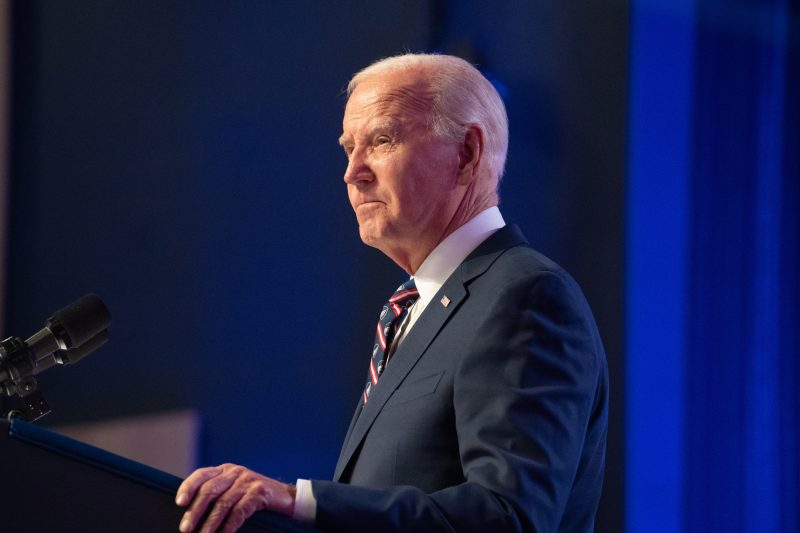Romanian far-right pro-Russian candidate barred from presidential vote
Three years after Jan. 6 attack, the political divide is even wider


Three years on, there is no escaping the impact on American politics of the Jan. 6, 2021, attack on the Capitol. Other issues will significantly influence the 2024 presidential election, but few define more clearly the contrasts, stakes and choice that will face voters in November than Jan. 6.
The passage of time has not moved the country toward any sort of consensus on what happened that day. It has done the opposite, with the cleavages that existed then now wider than they once were. Which is one major reason that, beyond the issues of inflation, the border or abortion, the 2024 election is viewed around the world as enormously consequential.
On this weekend that marks the third anniversary of the deadly riot at the Capitol, both President Biden and former president Donald Trump have been on the campaign trail — Biden on Friday in Valley Forge, Pa., and Trump with multiple stops in Iowa — offering a general election preview even before the first nominating contests take place.
Biden’s speech was the latest in a series of warnings he has issued about the threats he sees for the United States if Trump is reelected. “Whether democracy is still America’s sacred cause is the most urgent question of our time, and it’s what the 2024 election is all about,” he said. Of Trump, he said, “He’s willing to sacrifice our democracy [to] put himself in power.”
Trump has used the three years since the Capitol attack to double, triple and quadruple down on his false claim that the 2020 election was stolen from him — that it was marred by widespread fraud, which has never been proved, and that Biden’s victory therefore is illegitimate.
Despite the lack of proof for these claims, and in the face of four indictments (including two directly related to Jan. 6) and 91 felony counts, Trump has a commanding grip on his party and remains the overwhelming favorite to win the Republican nomination. The first test of his strength will come in the Iowa caucuses on Jan. 15, followed by New Hampshire’s primary on Jan. 23.
Seeking to turn a weakness of his own into an attack on Biden, Trump has claimed that it is the incumbent president, and not he, who represents the greater threat to democracy. His evidence? The very indictments handed up against him for attempting to subvert the 2020 election and mishandling classified documents show that Biden has weaponized the government against him.
It is an audacious claim but believable to Trump loyalists — and it has helped propel Trump toward the nomination. Some strategists believe that, if independent or Republican voters with qualms about the former president come to accept the rewriting of history, then they will be more forgiving of Trump and resistant to Biden’s rhetoric about democracy being at risk. That would give a boost to Trump’s chances of winning in November.
A new Gallup survey finds that satisfaction with the way democracy in this country is working is at an all-time low. The survey shows that 28 percent of Americans say they are satisfied, down from 35 percent soon after the attack on the Capitol.
Republicans are least satisfied, at 17 percent, while 38 percent of Democrats and 27 percent of independents say they are satisfied. It’s not unusual for the people associated with the party out of power in the White House to have a gloomier view on this question. But the deterioration over the past few years is one more reminder of the toxic environment in which the election year begins.
A new Washington Post-University of Maryland poll shows the power of Trump’s repetition of his false claims about 2020 and about the Capitol attack, which his allies have amplified. Today, Republicans accept Trump’s claims about the election as much or more than they did a year after the 2021 attacks.
The percentage of self-identified Republicans who say Biden was elected legitimately has declined from 39 percent in late 2021 to 31 percent today, according to the survey. Meanwhile, the percentage of Republicans who say there is solid evidence of widespread voter fraud in the 2020 election is unchanged: 62 percent in December 2021 and 62 percent in the new poll.
At the same time, Republicans are more forgiving of Trump’s role in the attack on the Capitol today than they were a year after the event. In the Post-UMD survey in December 2021, 27 percent of Republicans said Trump bore “a great deal” or “a good amount” of responsibility for what happened that day. Today that has declined to 15 percent. Today, 54 percent say he bears no responsibility at all for what happened, compared with 49 percent nearly a year after the attack.
Just 19 percent of Republicans say Trump’s exhortation to his followers to march to the Capitol as Congress was preparing to ratify Biden’s electoral college victory threatened democracy, and 30 percent say that the protesters entering the Capitol threatened democracy, according to the Post-UMD poll. On the view of those who stormed the Capitol, almost 9 in 10 Democrats and more than 6 in 10 independents say their actions threatened democracy.
Juries in the District and in Georgia ultimately will decide how much responsibility he bears for the Jan. 6 attack and for other actions seeking to overturn the 2020 results. The timing of those trials, however, remains uncertain, given pending and likely action by the Supreme Court.
The high court announced Friday that the justices will hear oral arguments on Feb. 8 on the recent decision by Colorado’s Supreme Court to bar Trump from the primary election ballot in that state, under terms of the 14th Amendment.
The justices also will probably have to rule on whether Trump is immune from criminal prosecution. A three-judge panel of the U.S. Court of Appeals for the District of Columbia Circuit has scheduled a hearing on that question for Tuesday.
The federal trial is set to start on March 4, but that date could easily get pushed back. A verdict would still be possible before November, however. The Georgia case might slip past the election year.
Most Democrats (86 percent) say the storming of the Capitol was an attack on democracy never to be forgotten, according to the Post-UMD survey. Most Republicans (72 percent) say it’s time to move on from what happened on Jan. 6.
The various legal proceedings guarantee that the events of that day and the days leading up to it will remain in the news. So far, they have only helped to strengthen Trump politically, though polls indicate that a conviction could be costly.
Biden is determined to make his case that a reelected Trump would bring new and greater threats to America’s institutions and the republic itself. The president probably will need more than that to ensure his reelection in November, but as Friday’s speech showed again, there are few election issues about which he is more passionate or animated.











